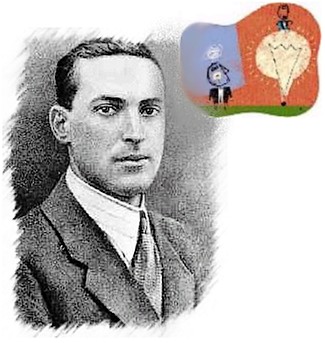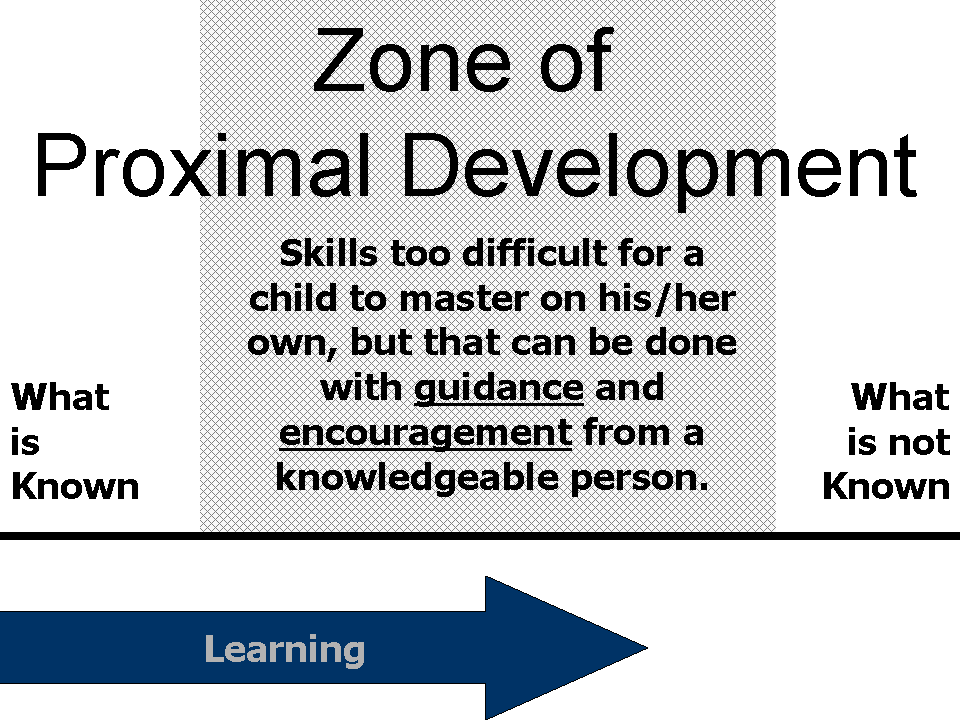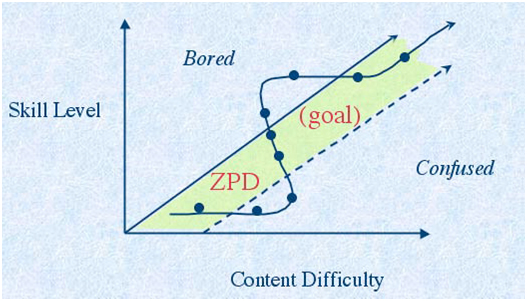| |
Lev Vygotsky |
|
| |
 |
|
| |
-
Sociocultural theory – emphasizes role in development of
cooperative dialogues between children and more knowledgeable
members of society
-
Children learn the culture of their community (ways of thinking &
behaving) through interactions
-
Zone of Proximal Development – phase at which a child can master
a task if given appropriate help and support
-
Scaffolding – support for learning and problem solving.
The support could be anything that allows the student to grow
in independence as a learner
-
Private
Speech
|
|
| |
Vygotsky's Zone of Proximal Development
(Video 3:02 Minutes)
|
|
| |
Example of Private Speech
(Video 00:40 Seconds) |
|
| |
Sociocultural Theory (Video 02:22 Minutes) |
|
| |
|
|
| |
What is the Zone of Proximal
Development? |
|
| |
"The distance between a child's actual
developmental level as determined through independent problem solving
and his/her potential development (level) as determined through problem
solving under adult guidance or a collaboration with more capable peers"
(Vygotsky, 1978). |
|
| |
|
|
| |
 |
|
| |
|
|
| |
 |
|
| |
|
|
| |
|
|


